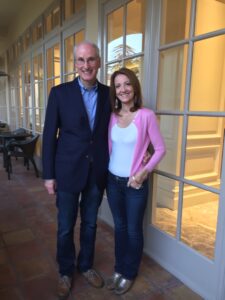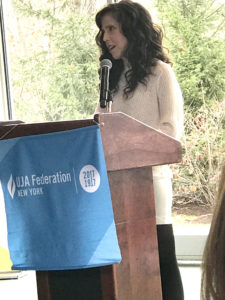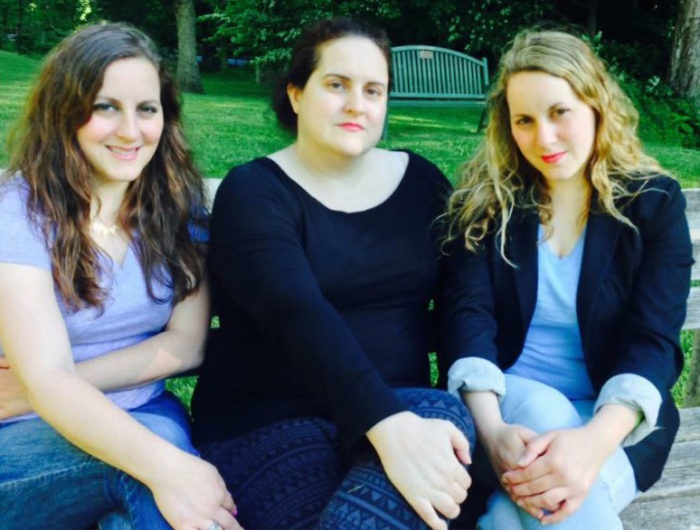
To commemorate their longstanding relationship with Northern Westchester Hospital (NWH), Scott D. Hayworth, MD, FACOG and The Honorable Nan Hayworth, MD–two of Westchester’s most prominent physicians–have donated $2.5 million to transform the hospital’s Maternal Child Health Unit. Upon completion, the Hayworth Family Maternity Center’s physical environment will be an appropriate setting for the high-caliber programs offered to women and families during every stage of pregnancy, birth, and postpartum.
“Together, Drs. Scott and Nan Hayworth have dedicated almost a half-century to Northern Westchester Hospital,” said Derek Anderson, the hospital’s executive director. “They understand the importance of the hospital’s Maternal Child Health Unit as a gateway for new families entering the community. We are very grateful for their generosity, their commitment to ensuring the delivery of person-centered care and for the appreciation this gift demonstrates for the entire care team at Northern Westchester Hospital.”
The gift will be allocated towards a major transformation of the unit, including renovation of the labor and delivery rooms; creation of two new triage rooms; the expansion of three existing recovery bays; and renovations to all 25 postpartum rooms.
“A transformative gift of this nature not only makes these important capital improvements possible, but it is also emblematic of the generosity of people in our community who make Northern Westchester Hospital the critical community asset that it is. We are most grateful that they have chosen to invest in us,” said Keeva Young-Wright, the hospital’s Foundation President.
The team delivers approximately 1,600 babies a year and provides care to the hospital’s tiniest patients in the Level III Neonatal Intensive Care Unit, which is equipped to stabilize and treat life-threatening emergencies and illnesses in newborns who weigh as little as 1 1/2 pounds at birth.. The hospital also offers a Level III Perinatal Center and special services such as a Mother-Baby Navigator program, which helps new parents navigate every issue related to pregnancy and birth.
“This community is not only where we live and have raised our family, but also where we’ve chosen to practice medicine,” said Dr. Scott Hayworth. “We’re so glad to have, through this gift, an opportunity to say ‘thank you,’ honor the incredible teams at Northern Westchester Hospital, and recognize the outstanding care they provide.”
Dr. Nan Hayworth added, “Throughout the decades we’ve been members of the community here, we’ve benefited enormously–as have our children and our parents–from having, in Northern Westchester Hospital, a hospital that is really miraculous: we have care of the highest quality, provided by a talented and dedicated team who treat us and our loved ones as family. It’s wonderful to be able to honor these great people with a gift to help the hospital continue to grow and transform its services in the 21st Century.”
Dr. Scott Hayworth is the President of the Optum Tri-State Region, made up of CareMount Medical, ProHEALTH NY, and Riverside Medical Group, comprising 2,250 providers at 380 locations and serving over 2.5 million patients. For more than 20 years he has also served as President and CEO of CareMount Medical, (formerly Mount Kisco Medical Group, PC). He began his career at Mount Kisco Medical Group in 1988 and he served as an attending OBGYN at NWH until 2015, including one memorable year in which he delivered four sets of triplets. Dr. Hayworth has also served on numerous NWH committees, including the Board of Directors of the NWH Foundation. He is a Clinical Assistant Professor of Obstetrics and Gynecology at the Zucker School of Medicine at Hofstra/Northwell and he advises and serves on the boards of many investment firms and businesses, including serving as a senior advisor at Arsenal Capital Partners and Amulet Capital Partners.
The Honorable Dr. Nan Hayworth is the first female physician ever elected to a full term as a Member of the House of Representatives, serving the 19th District of New York. She practiced ophthalmology for nearly 20 years in Mount Kisco and she was an attending physician at NWH throughout that time. Now a Strategic Business Development Advisor for Pilot Growth Equity, Dr. Hayworth is also chairman of the board of directors of ConservAmerica, an organization promoting economically-sustainable conservation and environmental protection, and a member of the boards of the Independent Women’s Forum, the Goodman Institute for Public Policy Research, Public Agenda, and United Way of Westchester and Putnam.
The Hayworths reside in Bedford, NY.
News courtesy of Northern Westchester Hospital.


